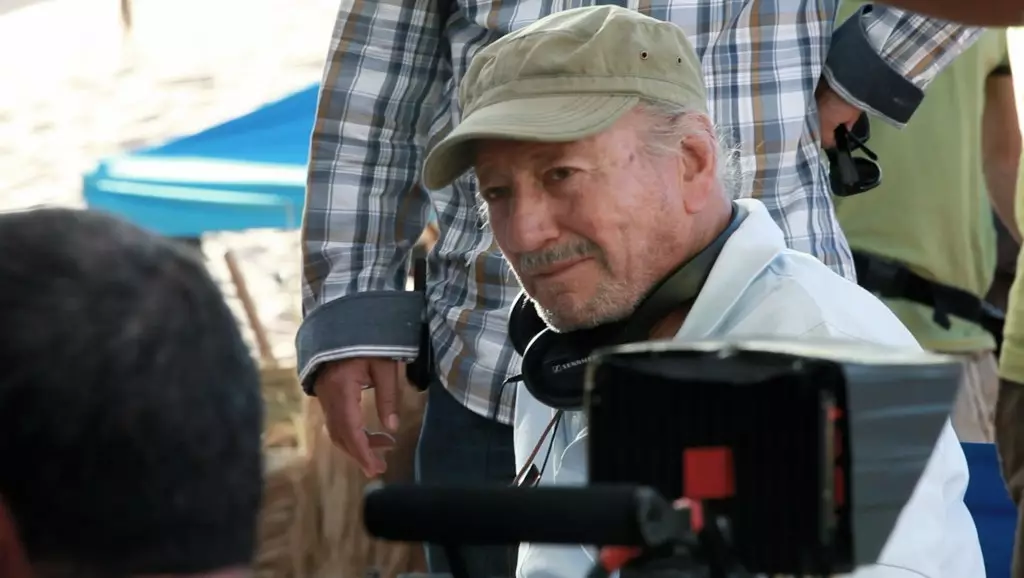Mohammed Lakhdar-Hamina’s journey is nothing short of incredible, marked by both personal tragedy and a deep passion for storytelling. Born on February 26, 1934, in M’sila, Algeria, he was shaped by the tumultuous backdrop of the Algerian War of Independence—a conflict that consumed his young adulthood and imprinted itself deeply within his body of work. His experiences during this period, particularly the loss of his father to the French colonial army, instilled a profound understanding of resistance, resilience, and the indomitable human spirit. At the age of 91, Lakhdar-Hamina’s passing from this world on May 23, 2023, is a reminder of the vital stories that shape our cultural heritage and the importance of echoing those narratives through cinema.
Lakhdar-Hamina studied film at the prestigious FAMU in Prague following an internship in Tunis with the Algerian resistance, where he was cementing his path into the world of cinema. What sets him apart from his contemporaries is how he crafted films that not only told stories but also acted as vessels of historical memory. His seminal work, *Chronicles of the Years of Fire*, remarkably remains the only film from Africa to ever win the Cannes Palme d’Or—a triumph that echoed the struggles of his people. This landmark film, recently celebrated with a screening in Cannes that coincidentally occurred on the day of his death, tells the story of the Algerian fight for independence through the perspective of a peasant farmer, reminding audiences of the resilience found in everyday lives amidst societal upheaval.
A Trailblazer in Cannes’ History
While many filmmakers often depict grand narratives of war and glory, Lakhdar-Hamina found beauty and tragic elegance in the lives of ordinary people. He was a pioneer within a film industry that was reluctant to embrace diverse voices. Competing in Cannes between the 1960s and 1980s, he became a pillar for Arab and African representation at a time when such visibility was nearly nonexistent. His fervent participation culminated in four competitive entries for the Palme d’Or. Each entry, from *The Winds of the Aures*, which nabbed the Best First Film Prize, to *Sandstorm* and *Last Image*, further established him as an unyielding voice of Algerian identity and artistry.
His cinematic output continued even after a significant hiatus from filmmaking, demonstrating an unwavering commitment to storytelling. His 2016 film, *Twilight of Shadows*, marked a remarkable return to form and was Algeria’s entry for the Best Foreign Language Film at the Oscars, illustrating how the passage of time had not dulled his creative edge or perspective. This resilience to create validates the notion that art often reacts to our experiences and surroundings and can indeed serve as a potent form of resistance and expression.
The Importance of Preservation
Lakhdar-Hamina’s works, particularly the recent restoration of *Chronicles of the Years of Fire*, underscore the importance of preserving our cultural heritage. This restoration process was not merely about rejuvenating a film; it engaged with broader initiatives like the African Film Heritage Project, which emphasizes locating, restoring, and sharing African cinema. Such efforts are vital in a world where narratives can often be forgotten or overwhelmed by dominant cultural discourses. The involvement of organizations like The Film Foundation and UNESCO signifies the vital role heritage plays in combating cultural erasure.
This restoration also brings to light the conversations about colonial impacts on cinema and culture at large. The ability to present historical narratives through diverse lenses that might have escaped mainstream appreciation is revolutionary. As the film is set to be re-released in theaters across France on August 6, it carries the weight of both history and the artist’s vision, ready to inspire a new generation.
In many ways, Lakhdar-Hamina’s life was a testament to the transformative power of cinema—a medium that not only reflects society but also shapes it. His passing reverberates through both the global film community and the hearts of those who understand the power of storytelling as a tool of liberation and awareness.

